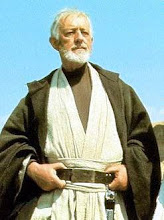After Nephi sees some things about the rise of the great and abominable church after Christ, he is shown the many waters that divide the Gentiles in the Old World from the seed of his brethren in the New World. The angel tell him that the wrath of God is upon the seed of his brethren. We know that after several generations pass away after the coming of Christ to the Nephite, they become a dark and loathsome people. This is why God is not pleased with them. They have killed off all the Nephites and anyone who will not deny Christ as stated in Moroni 1:2, "For behold, [the Lamanites] are exceedingly fierce among themselves; and because of their hatred they put to death every Nephite that will not deny the Christ."
This is important to know when we consider the next few verses. In Verse 12, the angel shows him the story about a certain man, "And I looked and beheld a man among the Gentiles, who was separated from the seed of my brethren by the many waters; and I beheld the Spirit of God, that it came down and wrought upon the man; and he went forth upon the many waters, even unto the seed of my brethren, who were in the promised land." Any ideas on who this man is? Again, we go to the Book of Mormon Institute Manual:
“Note that Nephi says that ‘the Spirit of God came down and wrought upon the man,’ thus causing him (Columbus) to sail across ‘the many waters, even unto the seed of my brethren who were in the promised land.’ . . .
“Columbus believed he could reach ‘the Indies’ by sailing westward. Although there were some people who still thought the world was flat, Columbus did not, and he was anxious to make his journey. But it was more than an urge for adventure that impelled the discoverer to undertake what he called ‘his enterprise.’
“Go to any public library, read almost any detailed biography of the discoverer, and it becomes immediately clear that he felt himself an inspired man, sent of heaven to make the voyage. For example, Columbus, Don Quixote of the Seas, written in German by Jacob Wassermann and translated into English by Eric Sutton, tells the story very well:
“‘From my first youth onward, I was a seaman and have so continued until this day. . . . Wherever on the earth a ship has been, I have been. I have spoken and treated with learned men, priests, and laymen, Latins and Greeks, Jews and Moors, and with many men of other faiths. The Lord was well disposed to my desire, and He bestowed upon me courage and understanding; knowledge of seafaring He gave me in abundance, of astrology as much as was needed, and of geometry and astronomy likewise. Further, He gave me joy and cunning in drawing maps and thereon cities, mountains, rivers, islands, and harbours, each one in its place. I have seen and truly I have studied all books—cosmographies, histories, chronicles, and philosophies, and other arts, for which our Lord unlocked my mind, sent me upon the sea, and gave me fire for the deed. Those who heard of my emprise called it foolish, mocked me, and laughed. But who can doubt but that the Holy Ghost inspired me?’
(Boston: Little, Brown, and Co., 1930, pp. 19–20. Italics added.)” (Mark E. Petersen, The Great
Prologue, pp. 25–26).
There are many ideas around now that Columbus was not a good person and is criticized heavily for bringing sickness and plagues to the Native Americans. Even his holiday is sparsely celebrated. I remember in 1992, 500 years after he came, there wasn't much done to commemorate it. Although there were some good people, the Lord had seen fit that these things should come upon them because of what they did to Nephi's seed. Let's remember, too, that if a righteous person dies as a result of another's actions, they will be saved. Having Columbus come to America was part of the Lord's plan to restore His gospel on the earth. There needed to be a land where religious freedom could be practiced. He could not restore His church in Europe, for example. They had to practice religion in a certain way or die, as we had discussed before with the Inquisitions.
Subscribe to:
Post Comments (Atom)

No comments:
Post a Comment